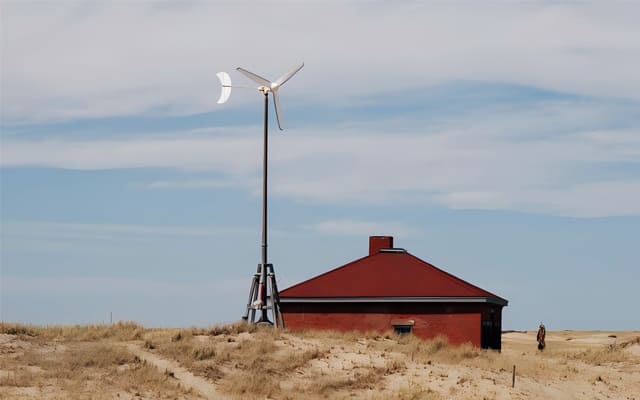As global awareness of environmental protection and sustainable development continues to rise, small wind turbine are emerging as a practical and eco-friendly solution for clean power generation. From rural electrification and island communication towers to maritime navigation and remote farms, more and more users are turning to this renewable, low-cost energy alternative.
At ELEGE NEW ENERGY, we are proud to introduce how small wind turbines utilize natural resources to achieve maximum power efficiency.
1. Capturing Wind Power for Clean Electricity
At the heart of a small wind turbine lies the ability to convert natural wind energy into usable electricity. When wind passes through the rotor blades, it creates kinetic energy that spins the turbine, which is then converted into electricity by a permanent magnet DC generator. This process requires no fossil fuels and produces no emissions, delivering truly carbon-free energy.
Like solar energy, wind is a renewable, abundant, and cost-effective resource that can be harnessed in various environments to supply stable and sustainable electricity.
2. Smart Site Selection to Maximize Wind Potential
Site selection plays a crucial role in the performance of any wind power system. At ELEGE, we recommend considering the following criteria when installing a small wind turbine:
-
An average annual wind speed of 3–4 m/s or higher
-
Open areas or elevated locations such as coastal zones, hilltops, or farmlands
-
Minimal obstructions from tall buildings or trees
-
Consistent wind patterns for stable output and reduced wear
Proper placement helps enhance wind energy capture, reduce maintenance costs, and improve long-term return on investment.
3. Optimized Design for Higher Efficiency
To fully harness wind energy, today’s small wind turbines incorporate advanced structural and material designs:
-
Tall tower mounts to access stronger and steadier wind flows
-
Fiberglass-reinforced blades for better flexibility, durability, and lower cut-in wind speeds
-
Smart control systems to track wind direction and optimize energy conversion
-
Integration with solar systems to form wind and solar hybrid generators, enabling around-the-clock power generation regardless of weather conditions
These innovations ensure that small wind turbines can operate reliably across diverse environments with improved efficiency and performance.

